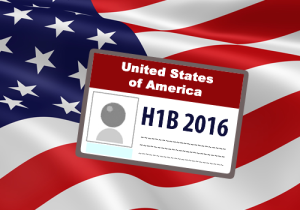
The Immigration Innovation (I Squared) Act of 2015 is a bipartisan proposal by the US Senate to encourage the influx and retention of “high-skilled” talent and labor in the United States. The focus of the bill is the H-1B visa, which is for foreigners with a job opportunity, in a specialty profession that requires a bachelor’s degree. The other requirements are that the employer will pay the foreign employee at the prevailing wage or actual wage and that the hiring of the employee will not adversely affect the working conditions for US workers. To obtain an H-1B visa is an entire process for the employer (labor condition agreement, attestations, expenses), and although some employers fall into H-1B dependency, some of the most powerful and wealthy companies (also, small and medium-sized businesses) have clamored for H-1B visa reform for years and years as part of necessary immigration reform to keep American globally competitive. The H-1B visa can be used for a variety of professions – medicine, accountant, engineer – but it seems that its preponderance is located in computer-based professions.
I Squared has specific proposals that please the advocates of H-1B reforms. They are (not exclusively):
- Increasing the cap of visas from 65,000 to 115,000;
- Eliminating the 20,000 Master’s Degree or higher exempt visas;
- Employment Authorization for H-4 spouse visa holders (H-4 visas are for dependents and the recent executive actions intimate at work authorization for H-4 holders);
- Exempting dependents of employment-based immigrant visa recipients, U.S. STEM advanced degree holders, persons with extraordinary ability, and outstanding professors and researchers from the employment-based green card cap;
- Removing the annual per-country limits for employment-based visas;
- Instituting a grant program to promote STEM education and US worker retraining
An important aspect of increasing the visa cap to 115,000 is that number represents the floor on the number of visas to be issued for the fiscal year. That number can elevate to 195,000 depending on demand for that particular year.
Even if this bill were to become a law in short order, its provisions would not apply to the current round of H-1B applications. H-1B applications need to be sent out by March 31 for the April 1 filing date to be considered for October 1, when the fiscal year begins. As the cap is usually reached that first week in October, timing is crucial. The consistent and excessive demand for H-1B visas proves that reform in this category is necessary. Although it seems to have the appearance of bipartisan support, the legislative and political process will still have their say. Senator Orrin Hatch proposed a similar bill in 2013 (with the possibility of a 300,000 visa cap) that did not flourish into a bill. Regardless, we remain hopeful that the H-1B visa system and employment-based immigration will be improved in short order.

